We are collectively dealing with too many unnecessary social disasters. Henry Hazlitt called these disasters the inevitable result of focusing on the immediate and the isolated, rather than on the long term and the whole. Others call them unintended consequences. Parents warn about them by saying to their children, “From my experience, you should be more careful, because here’s what’s going to happen…”
In Hazlitt’s short book, Economics in One Lesson, he wrote in Chapter 15:
“In studying the effects of any given economic proposal, we must trace not merely the immediate results but the results in the long run, not merely the primary consequences but the secondary consequences, and not merely the effects on some special group but the effects on everyone…It is foolish and misleading to concentrate our attention merely on some special point—to examine, for example, merely what happens in one industry without considering what happens in all. But it is precisely from the persistent and lazy habit of thinking only of some particular industry or process in isolation that the major fallacies of economics stem.” (Emphasis added).
As I wrote in a post back in 2013, Hazlitt’s point is that the immediate result of a law, regulation or policy created to benefit one group may look good in the short run, but it may also prove to be a total disaster for the rest of us, and for the economy as a whole. And there is always this follow-on result—it is not optional (“What We Don’t See is Killing Us,” August 29).
This truth is not limited to Economics, but applies to all areas of behavior, and even to policies. Hopefully each of us first learns this truth from our parents, who have the experience to warn us that certain actions will have secondary, unforeseen-to-the-child-right-now consequences, from eating too much junk food, to taking something that belongs to someone else, to participating in casual sex. With good parents, we learn early that ignoring this longer term wisdom can lead to big problems and real pain.
parents, who have the experience to warn us that certain actions will have secondary, unforeseen-to-the-child-right-now consequences, from eating too much junk food, to taking something that belongs to someone else, to participating in casual sex. With good parents, we learn early that ignoring this longer term wisdom can lead to big problems and real pain.
Why has this foundational, parental-like wisdom—to be wary of the secondary consequences of seemingly simple actions—been so absent from most government policies? Maybe it’s because while parents don’t have to run for re-election, policy makers do, and so truth and wisdom are often kicked down the road to avoid dealing with an electoral temper tantrum.
But just because truth is ignored to avoid a temporary unpleasantness does not make it any less true, nor the consequences of our actions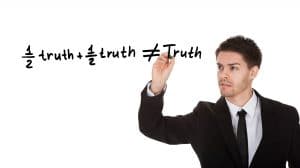
What are some examples of the secondary disasters that can haunt us when there are no “parents” in the legislative or policy-making process to warn us about what our seemingly good intentions will create?
1. Affirmative Action Voting Districts lead to less competitive elections. Gerrymandering has a long history of under-the-table political interference in elections, but the well-intentioned Voting Rights Act of 1965 turned gerrymandering into a legitimate science to create a specific outcome for a specific group of voters. The unintended result has been that state legislatures of both parties have used the Congressional Map redrawing process to create specific, planned outcomes in many Congressional Districts, meaning that many elections for the U.S. House of Representatives are much less competitive.
If districts are drawn using recognizable boundaries, like county lines, with the only goal being to generally equalize the number of people in each district, then a candidate must learn how to win in a district where not everyone thinks exactly the same on most issues. The candidate must listen, compromisea bit, and move more to the locally defined middle, learning to work with the other side to keep a diverse majority happy back home.

The terrible unintended consequence? A House of Representatives made up of single-minded members who would rather do nothing than be seen back home as the least bit accommodating to another point of view, even if the lack of action harms those same constituents.
Let’s go back to simple, county/city line defined districts, and encourage our Congressmen to learn how to put together a local majority of disparate constituents, rather than rely on serving only the artificially contrived uniformity of a look-alike, homogeneous majority.
2. Giving people money not to work, and giving more funds to homes without fathers, leads to more poverty, crime, hopelessness, and homes without fathers.
See The link between single mother welfare, fatherlessness, poverty and crime | WINTERY KNIGHT
From Hazlitt’s point of view, the local news can make us all feel good in the short run with a video story about an unemployed single Mom of three using her government-supplied gift card to buy groceries. But there is no one around in ten years to video the potentially very negative results of those same children growing up in a home without a father, unless a crime is committed.
Yes, we need a Social Safety Net, and the point here is not to explore all the possible solutions, which will require hard work across a range of private and local government programs, all aimed at not only providing necessities, but also at changing behaviors and teaching skills. Hopefully many of the initiatives will be faith based.
The point here is that handing out money alone doesn’t solve the problem—it adds to it.
3. The War on Drugs encourages addiction, violent cartels, international destabilization, powerful gangs, and death. And costs a fortune to accomplish all that destruction.

We were much brighter a hundred years ago. We only let Prohibition wreck us for fifteen years before we got rid of it. The War On Drugs is in its sixth unsuccessful decade! Remember, before Prohibition there was crime. After Prohibition there was Organized Crime. A terrible mistake then, and a much worse mistake now.
4. Protecting federally-insured home loans by requiring segregated neighborhoods destroyed wealth creation and encouraged racism and poverty.
So you think race-related poverty, lack of wealth, and calls for reparations are because many Southerners owned slaves before the Civil War and passed Jim Crow laws after it? You would of course be partly correct. But the most recent destroyer of potential economic equality was actually mandated until 
See When The Law Is Wrong for an overview of how federal programs to spur housing development deduced from appraisals that home values were higher in neighborhoods without racial mixing. Since the federal government insured the loans, they could make the rules, and the government banned integrated neighborhoods across the nation. So African-Americans were prohibited by their own federal government from owning homes in white neighborhoods. And generations of black Americans lost out on the cross-generational ability to build wealth through home ownership.
5. Imposing a 10% Tariff on All Imports will create complex secondary results across several years which will require careful monitoring and constant evaluation.
While the four examples above produce clrear, predictable but generally ignored secondary results, for a quick demonstration of why economic policies are sometimes difficult to sort out, read the following two opposing articles: “There’s A New Tariff In Town” and “Why Trump Is Right About Tariffs”.
The first follows Hazlitt’s general theories and concludes that tariffs are an economic disaster for the country imposing them, even before other countries retaliate with their own tariffs, because they raise prices and create inefficiencies.
The second article makes the case that, even ignoring the “everything is not equal” case of China and others stealing our secrets and ignoring trade rules, we’ve offshored too much of our production by pursuing lower costs and now suffer from complicated supply chain issues and the lack of manufacturing prowess and innovation. It concludes that a little classical economic inefficiency is not too high a price to pay for more innovation and good jobs here. Plus a tax to help reduce the debt.
But then what if other nations do the same, and we retaliate with still higher tariffs? I worry that in a “feel good” moment of national assertion there will be secondary and tertiary results that we will wish we had not unleashed. We haven’t been down the international trade war road for a century, and it will take constant monitoring and careful evaluation to try to maintain some golden balance between higher costs and national interests. There are bound to be disruptive overshoots and mistakes. Fasten your seatbelt.
Looking to the future, there are at least two powerful secondary-impact issues which are not complicated, and which require immediate action to avert almost certain disastrous consequences.
6. The interest which must be paid on our exploding Debt will restrict our range of actions, both domestic and foreign, and hobble us as a nation.
At 5% annual interest, the amount which must be paid every year on $34 trillion of National Debt is a staggering $1.7 trillion. Right now it is about half that amount because much of our debt has not rolled and reset with the higher current rates. But in 2024 even those interest payments will exceed the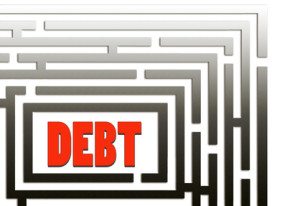
Unfortunately, we are now in a vicious cycle, where higher rates create more interest coming due which, if not paid with taxes, requires more debt to pay it…which increases the debt still more—the vicious cycle.
And if those who hold our debt get nervous over our ability to pay interest, they will demand higher rates to hold our debt, thereby increasing the velocity of the upwardly spiraling vicious cycle. And so on, until…No one really knows, except that our children and grandchildren will have to stop doing other important things in order to pay this large and increasing interest load that we are burdening them with, day after day. Will they have to cut Defense? Veterans Benefits? Social Security? Medicare? Medicaid? Pensions? Airline Safety? It’s hard to imagine, but it’s coming if we don’t act now to rein in spending. See “Starve The Federal Beast.”
7. The surge of undocumented and unknown people across our Southern Border for the last three years will have lasting impacts for years to come.
The best estimate for illegal immigrants during the Biden years is about 10 million, including the “gotaways”. That figure includes military-age single men from the Middle East, China and elsewhere. We have no way to know who they are, where they are, or why they are here. If 99.5% of the illegal immigrants are law abiding, peaceful people who only want to work and raise their families, that still leaves 50,000 potential gang members and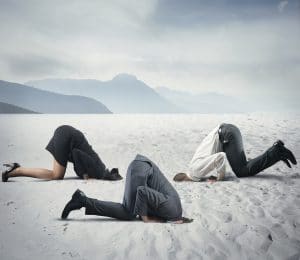
So beyond all the immediate physical, medical and financial strains concentrated now in Sanctuary Cities but spreading rapidly across our nation, there is the increased real threat of violence, destruction and death. Perhaps to tens of thousands of our citizens.
One thing seems different to me about the secondary and tertiary impacts of this policy: they cannot be unforeseen. They are clearly known but totally ignored. Which, when they happen, will make them all the more tragic and reprehensible. Yet our government does nothing.
Who today has the “parental” wisdom to tell the government to stop overspending and to stop importing unknown enemies to live among us?
Instead, we seem headed toward an election between two self-absorbed old men who act more like preening teenagers, focused on ways to one-up each other for their own aggrandizement, rather than ways to serve and benefit the nation.
But beyond November, the clear message of all these secondary impacts from policies that seem simple and beneficial at first, but turn out to be disastrous, is:
Be careful in giving so much power to the federal government, because when they get something wrong, they can very quickly, and over a long period of time, really mess up millions of lives.


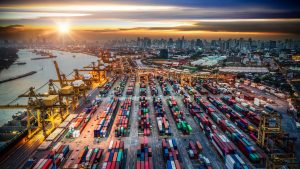
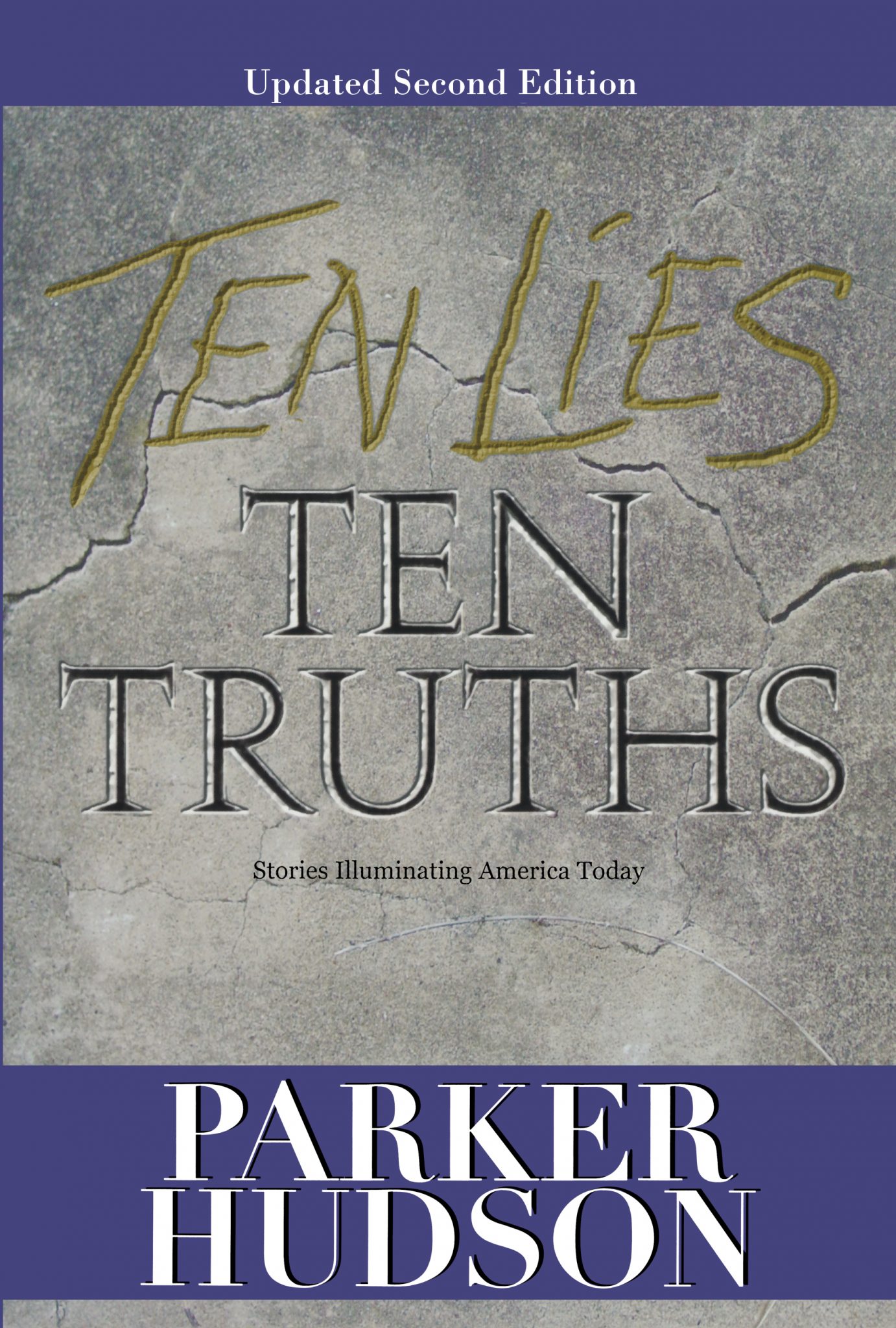
Yes, so insightful and truth told. Many should read and prayerfully consider.
Thank you, Parker, for providing an insightful overview and presenting a perspective that is grounded in truth and reality. Your summary effectively highlights the many years of misguided policies that have adversely affected our country. I’ve heard it said that truth is something that is discovered, not simply downloaded, and I hope that those in leadership across all three branches of government will truly discover the realities of the many errant ways that have impacted our nation. Please continue in your efforts to provide a voice of reason and truth.
Very thoughtful analysis of the disastrous consequences of poor public policies by persons dedicated to the hatred of and elimination of rights protected by the Constitution of the United States. Prayer and conscience-borne action are necessary to correct the wreckage of what is being destroyed every day.